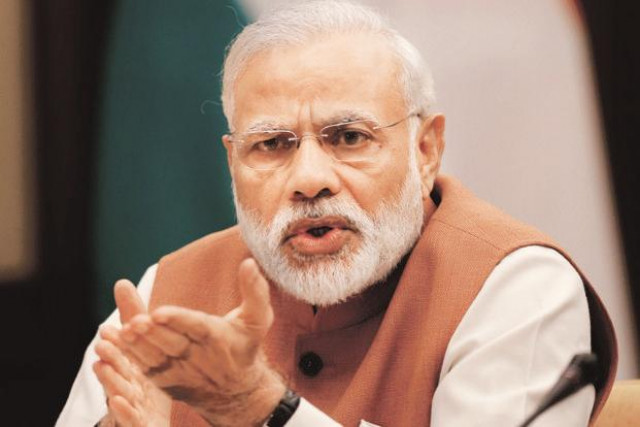International aviation body dismisses India's complaint against Pakistan
ICAO says flights carrying national leaders are considered 'state aircraft', not subject to provisions under the body

A Reuters file photo of Narendra Modi.
The ICAO maintained that flights carrying national leaders are considered “state aircraft” and not subject to provisions under the body.
"The Convention on International Civil Aviation (Chicago Convention), which ICAO helps governments to cooperate under, only applies to the operations of civilian aircraft and not to state or military aircraft," said an ICAO spokesperson.
Islamabad had turned down New Delhi's request to allow Modi to use its airspace for his flight to the Kingdom of Saudi Arabia on Sunday.
Foreign Minister Shah Mehmood Qureshi said the decision was made keeping in view the human rights violations in Indian Occupied Kashmir (IOK).
This was the second time in two months that New Delhi sought permission for Modi to use Pakistani airspace – and was subsequently denied.
New Delhi requested Islamabad to allow Modi’s plane to use Pakistani airspace on September 20 for a visit to Germany and again on September 28 on his way back to India after attending the UN General Assembly (UNGA) session in New York.
The Press Trust of India reported that New Delhi ‘regretted’ Pakistan’s decision to not grant clearance for “VVIP special flight granted routinely by any normal country.”
"Overflight clearances are sought, and granted by other countries as per prescribed ICAO guidelines," a source told PTI.
General Rawat’s dangerous ambition
Why did Pakistan refuse?
Pakistan closed its airspace to Indian traffic after aerial dogfights in February this year ratcheted up tensions between the two nuclear-armed rivals. It reopened its skies for all civilian traffic in July, ending months of restrictions affecting major international routes.
Tensions flared up between the two neighbours again on August 5 when India revoked the special status of the occupied valley and imposed information and communication.
Modi denied permission to use Pakistan airspace
What is ICAO?
ICAO is a UN specialised agency, established by the United States in 1944 to manage the administration and governance of the Convention on International Civil Aviation (Chicago Convention).
“ICAO works with the Convention’s 193 Member States and industry groups to reach consensus on international civil aviation Standards and Recommended Practices (SARPs) and policies in support of a safe, efficient, secure, economically sustainable and environmentally responsible civil aviation sector,” stated the website.
“These SARPs and policies are used by ICAO Member States to ensure that their local civil aviation operations and regulations conform to global norms, which in turn permits more than 100,000 daily flights in aviation’s global network to operate safely and reliably in every region of the world.”


















COMMENTS
Comments are moderated and generally will be posted if they are on-topic and not abusive.
For more information, please see our Comments FAQ